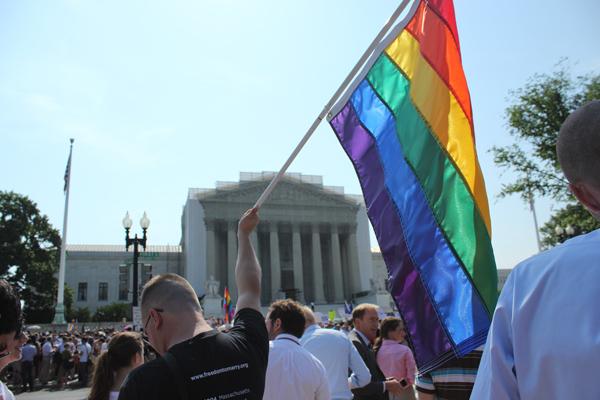State bans on same-sex marriage have been justified based on judicial precedent, states’ rights, regulating procreation, optimal child-rearing, and centuries-old tradition. Those reasons also have been loudly debunked.
When it convenes April 28 for one of the most historic oral arguments in its 226-year history, the Supreme Court will hear all of those arguments and more from five lawyers representing gays and lesbians on one side, and the states of Kentucky, Michigan, Ohio, and Tennessee on the other. But the justices also will have read what dozens of federal trial and appeals court judges have written.
Here’s a look at five major arguments cited by those appeals court judges in their rulings. In addition to the four Midwest states whose bans were upheld, the circuit courts struck down similar bans in Idaho, Indiana, Nevada, Oklahoma, Utah, Virginia, and Wisconsin.
1. Judicial Precedent
The first hurdle in the gay marriage debate facing lower court judges has been what to make of a 1972 Supreme Court ruling that denied marriage rights to a gay couple in Minnesota.
The one-line summary decision in Baker v. Nelson upheld the state’s ban on same-sex marriage “for want of a substantial federal question.” At the time, marriage was seen as the exclusive purview of the states.
Because of the wealth of judicial rulings that have come in the following four decades, most federal judges have reasoned that Baker does not tie their hands.
“Since Baker, the court has meaningfully altered the way it views both sex and sexual orientation through the equal protection lens,” the U.S. Court of Appeals for the 4th Circuit ruled in the Virginia case, Bostic v. Schaefer. The panel’s majority noted that the justices did not even mention the 1972 case when they struck down a key section of the federal Defense of Marriage Act in 2013.
In the case of Obergefell v. Hodges now before the Supreme Court, however, Judge Jeffrey Sutton of the U.S. Court of Appeals for the 6th Circuit differed with all the previous rulings.
“This type of summary decision, it is true, does not bind the Supreme Court in later cases,” he wrote for his panel’s 2-1 majority.
“But it does confine lower federal courts in later cases.”
2. State's Rights
Read the Full Article

